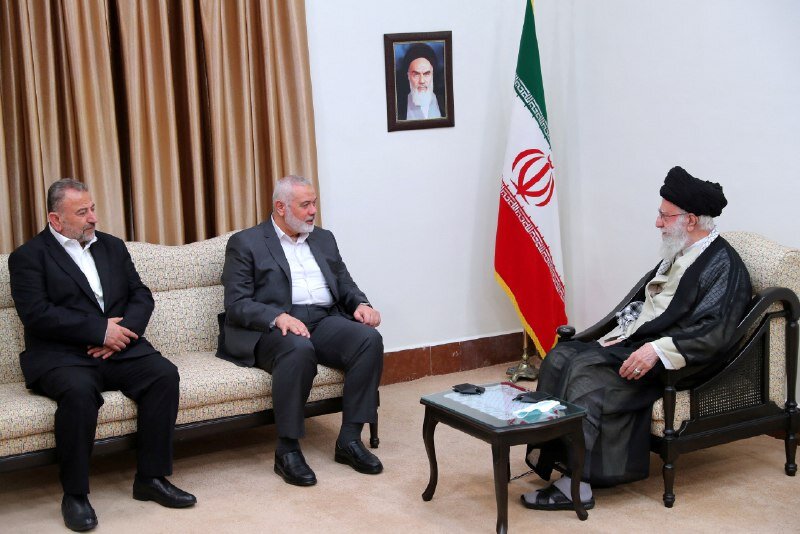Reuters or dream makers?

TEHRAN - While the Israeli regime's killing machine, with the support of the West, has killed over 11,000 citizens of Gaza in more than 40 days - two-thirds of whom women and children - Western media has appeared as a whitewashing machine for genocide and seeks to justify the crimes of Israel.
Of course, propaganda and psychological operations in war are not a strange phenomenon, and Western media must also be considered part of the unequal forces involved in this war. A force that tries to support Israel's crimes in Gaza with flimsy and unacceptable excuses such as "the right to self-defense."
One of these psychological operations was exposed by Reuters on November 15. Reuters claimed in a news report, citing three informed sources in Iran, that Ayatollah Khamenei, the Leader of Iran, complained in a recent meeting with Ismail Haniyeh in Tehran that Hamas had refused to inform Iran about the "Al-Aqsa Storm" operation.
First and foremost, it must be said that this is a tendentious and unprofessional news report. Accurate information received by the Tehran Times indicates that such a claim was not true and such a matter was not even discussed in the meeting.
This fake news can be examined from two perspectives. First, sowing discord on the enemy's front is an old and perennial technique. Both sides of a conflict strive to weaken the unity and cohesion of the opposing party through various methods, especially through psychological operations. The Reuters fake news can also be analyzed from this angle; an attempt to create discord between the Islamic Republic of Iran and the Palestinian resistance front. In fact, Reuters tries to pretend that Hamas does not trust Iran and Iran is also complaining about this lack of trust.
Second, the discussion is related to Reuters' history in this regard. Mohammad Javad Zarif, the former foreign minister of Iran - who has always tried to take a balanced approach toward foreign media - could not remain silent in the face of baseless reports by Reuters. On July 24, 2018, Zarif said: "Know that Reuters produces 50 lies about Iran's economy every day."
A very long list of Reuters' lies about Iran can be presented: the claim of 1,500 deaths in the events of November 2019, the claim of Iranian snipers shooting Iraqi protesters in October 2019, the claim of transferring ballistic missiles from Iran to Iraq in August 2018, the claim of a drone attack on Aramco from southern Iran in November 2019, etc.
are just a few examples of Reuters' lies against Iran. Interestingly, Reuters often attributes its lies to three anonymous sources. It's as if a lie becomes believable if it is attributed to three people!
The fact that most rooted and professional media in the West, when it comes to Iran and its issues, set aside their principles and frameworks and turn their dreams into a tool of vile propaganda, is a separate and important issue that must be addressed independently and deeply.
